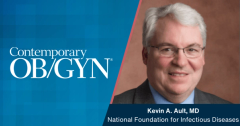Conference Coverage
about 1 month ago
2025 women's health conference recapTrending on Contemporary OB/GYN
FDA updates labels on multiple menopausal hormone therapies
Antidepressant discontinuation in pregnancy tied to higher mental health emergency risk
Rose Molina, MD, discusses equitable ob-gyn care for immigrants at SMFM 2026
Christina Paidas Teefey, MD, on earlier fetal diagnosing and future psychosocial support
FDA approves changes to iPLEDGE REMS to reduce burden during use of isotretinoin
Latest News
Shorts

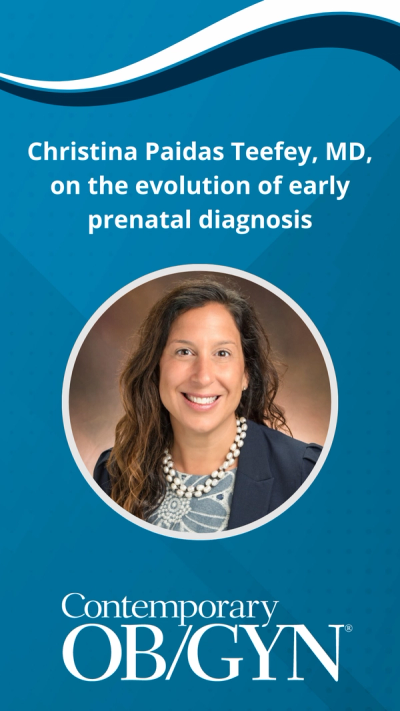
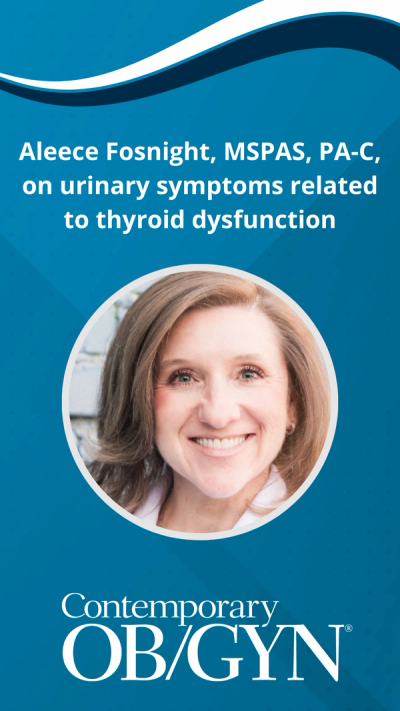
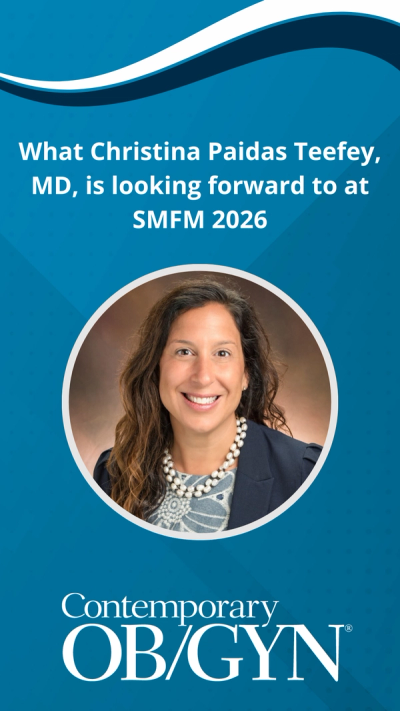
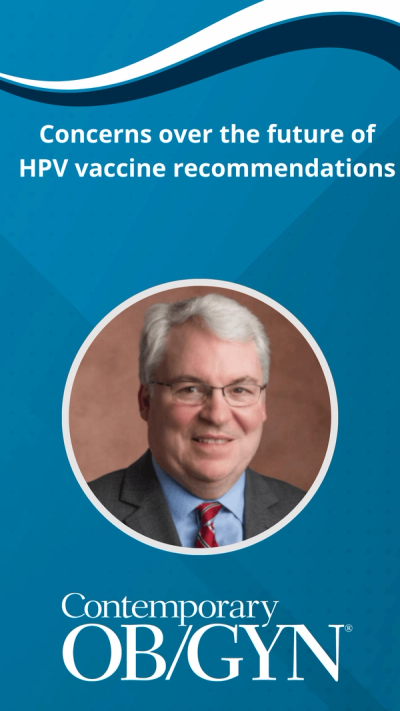
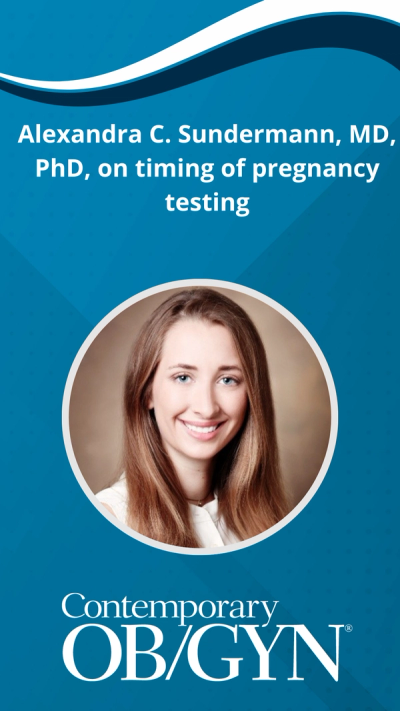
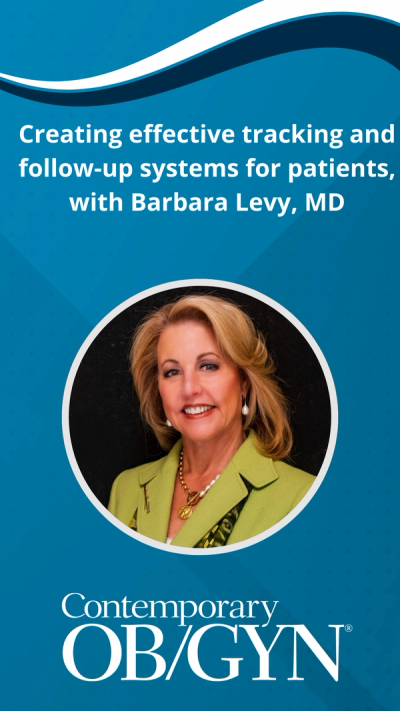
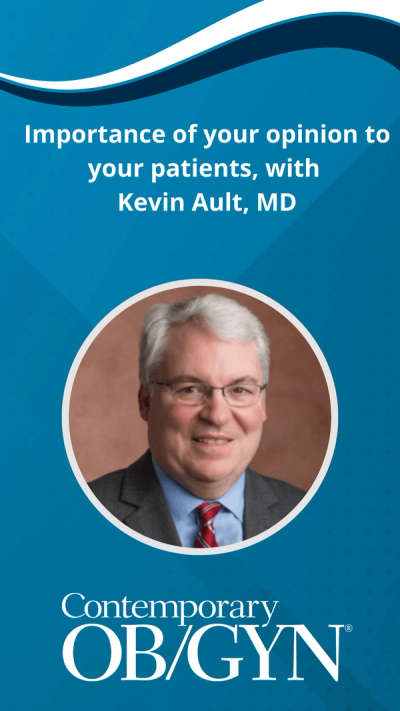
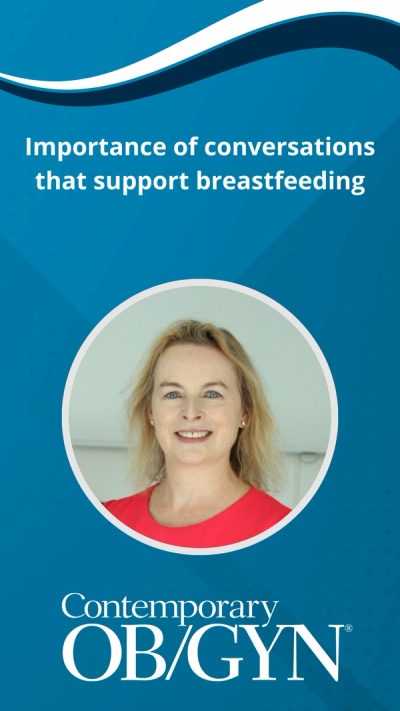
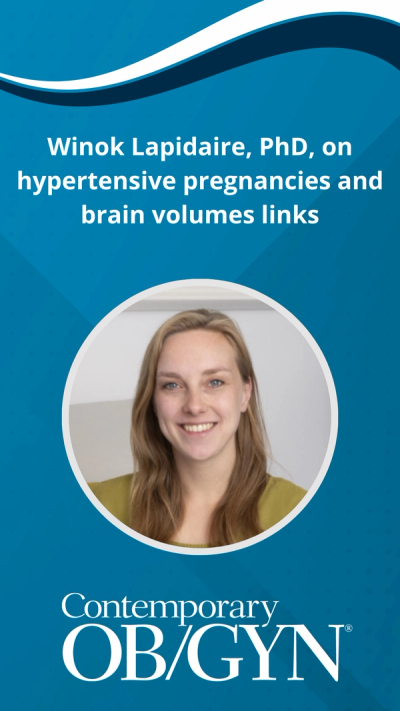
Podcasts

Pap Talk S4E15: MIRA surgical system for hysterectomy with Jean Dubuisson, MD, PhD
In this episode of Pap Talk, Jean Dubuisson, MD, PhD, discusses the first successful hysterectomy performed using the MIRA surgical system.

Bonus episode: Alternatives to hysterectomy & uterine-preserving options for fibroids, part 2
This is part 2 of a 2-part series. In this bonus episode of Pap Talk, get an exclusive recap of Kimberly Kho, MD's presentation from AAGL 2022 on alternatives to hysterectomy and uterine-preserving options for fibroids.

Bonus episode: Alternatives to hysterectomy & uterine-preserving options for fibroids, part 1
This is part 1 of a 2-part series. In this bonus episode of Pap Talk, get an exclusive recap of Kimberly Kho, MD's presentation from AAGL 2022 on alternatives to hysterectomy and uterine-preserving options for fibroids.

Recap on reproductive rights with David Hackney, MD, MS
In this episode of Pap Talk, we spoke with David Hackney, MD, MS, maternal-fetal medicine physician at Case Western Reserve University and chair of ACOG's Ohio chapter for a full recap of where restrictions on reproductive rights have been and where they're going.

Pap Talk: Bonus episode S4E11: EMIGS with Dr. Nash Moawad
In this bonus episode, Nash Moawad, MD, MS, FACOG, FACS, sits down to discuss the recent standardization of Essentials of Minimally Invasive Gynecologic Surgery (EMIGS) training program for minimally invasive gynecologic surgeons and how it's shaping the way this subspecialty delivers care.

Pap Talk S4E10: 2023 women's health outlook
In this episode of Pap Talk, Alison Cowan, MD, discusses her predictions for women's health trends in 2023.

Pap Talk: The impact of environmental exposures on women's health
From safe baby products to helping your patients become educated consumers, Huffling's insights are valuable across practices.
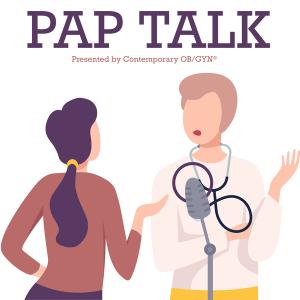
Pap Talk: Medications for early pregnancy loss with Amy Levi, CNM, WHNP-BC, FACNM, FAAN
Amy Levi, CNM, WHNP-BC, FACNM, FAAN, Albers Endowed Professor of Midwifery at the University of New Mexico College of Nursing, sits down to discuss her presentation at the NPWH 25th Annual Premier Women's Healthcare Conference on medications for early pregnancy loss.

Pap Talk: Medications for early pregnancy loss
In this episode of Pap Talk, Amy Levi, CNM, WHNP-BC, FACNM, FAAN, Albers Endowed Professor of Midwifery at the University of New Mexico College of Nursing, sits down to discuss her presentation at the NPWH 25th Annual Premier Women's Healthcare Conference on medications for early pregnancy loss.

Vaginismus: Managing a Misunderstood and Underdiagnosed Condition
Tune into this valuable discussion with host Scott Kober and experts Rachel Pope, MD, MPH, and Sheryl Kingsberg, PhD, as they highlight the overall impact of vaginismus and discuss strategies to combat its effects on women who are diagnosed the condition.
Videos
Continuing Medical Education
All News

If allowed by prescribers, patients can complete pregnancy tests outside of a medical setting, but must complete pre-treatment pregnancy tests in a medical setting, according to the FDA.

According to Aleece Fosnight, MSPAS, PA-C, the physiologic effects of hypothyroidism can directly affect neuromuscular coordination, bladder emptying, and pelvic floor function.

Addressing geographic inequities in maternal-fetal medicine care through workforce investment and policy reform is critical to improving pregnancy outcomes and reducing maternal deaths, according to SMFM.

A look into what to expect at the 2026 Society for Maternal-Fetal Medicine 2026 Pregnancy Meeting from Las Vegas, Nevada, with Christina Paidas Teefey, MD, a maternal fetal medicine specialist.

Women who experienced menopause before age 50 had higher rates of MASLD and adverse metabolic outcomes, according to reasearch published in Diabetes Metabolism Research and Reviews.

Get caught up with Contemporary OB/GYN! This list helps you navigate our top stories from the week, all in one place.

Data supporting the safety of influenza, pertussis, and COVID-19 vaccines in pregnancy remain strong, even as policy shifts raise concerns about future HPV vaccination recommendations, Kevin Ault, MD said.

In a large preconception cohort, more than 40% of pregnancy planners reported very early home pregnancy testing, which was associated with higher risks of false-negative results and detection of very early pregnancy losses.

"It really is important for us to be able to explain to women the why. Why are we doing this?" said Barbara Levy, MD, in this Contemporary OB/GYN interview.

A Chinese study found that menstrual blood HPV testing had a comparable diagnostic accuracy to clinician-collected cervical samples in detecting CIN2+ and CIN3+.

Kevin Ault, MD, of the NFID, explains the importance of data- and evidence-based guidance, such as that of ACOG, for maternal immunization recommendations.

A new ACOG Committee Statement outlines how immigration status affects health outcomes and calls for enforcement-free health care settings.


ACOG continues to support maternal immunization against COVID-19, flu, and RSV amid growing public questions about vaccine safety during pregnancy.

Take a look back at any of our expert video interviews you may have missed from January 2026.

Take a quick look at everything you may have missed in January, from our latest video interviews to new clinical trial data to a FAQ on cervical cancer.

“We do know that women, their intention to breastfeed is a very strong predictor of them successfully breastfeeding. Those conversations in pregnancy are very important," said Fionnuala McAuliffe, MD, in this Contemporary OB/GYN interview.

Trial shows higher sensitivity with AI-supported breast cancer screening.

Federal guidance now designates primary hrHPV testing every 5 years as the preferred cervical cancer screening method for most average-risk women aged 30 to 65 years and adds patient self-collection as an acceptable option.

The scope of the marketplace contrasted sharply with the available evidence.

Winok Lapidaire, PhD, explains how early postpartum physician-guided blood pressure self-management after hypertensive pregnancy was associated with higher white matter volumes.
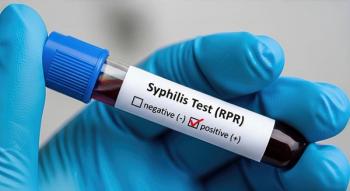
Universal prenatal syphilis screening legislation in Michigan was followed by substantial increases in early third-trimester testing among Medicaid enrollees.

United States labor induction rates have expanded to 37 and 38 weeks despite a lack of randomized evidence supporting non–medically indicated induction before 39 weeks.

The pause request comes as the administration considers whether to keep current federal rules in place that allow for remote access to mifepristone.
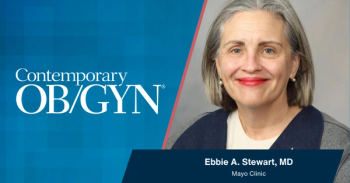
A central focus is understanding and reducing patient-level barriers to timely, values-congruent fibroid care

A new AHA scientific statement outlines how earlier prevention, rapid diagnosis and timely treatment can reduce the risks of maternal stroke during pregnancy and postpartum.

New national data show major declines in RA mortality among older women, alongside enduring racial and geographic inequities.

Menopause was associated with increased anxiety, depression, sleep problems and reductions in grey matter in key brain regions.

New FDA guidance and AACR-bound data highlight Aviva Bio’s progress in developing a differentiated testosterone therapy aimed at reducing breast cancer risk in women.

The AAP'S 2026 schedule has been endorsed by 12 medical and health organizations, including the American College of Nurse Midwives and the American College of Obstetricians and Gynecologists.

Get caught up with Contemporary OB/GYN! This list helps you navigate our top stories from the week, all in one place.

Longer lifetime breastfeeding was associated with lower odds of depression and anxiety up to 10 years later in a prospective cohort of midlife women.

In patients with diet-controlled gestational diabetes, continuing pregnancy beyond 39 weeks was associated with increasing maternal and neonatal risks.











